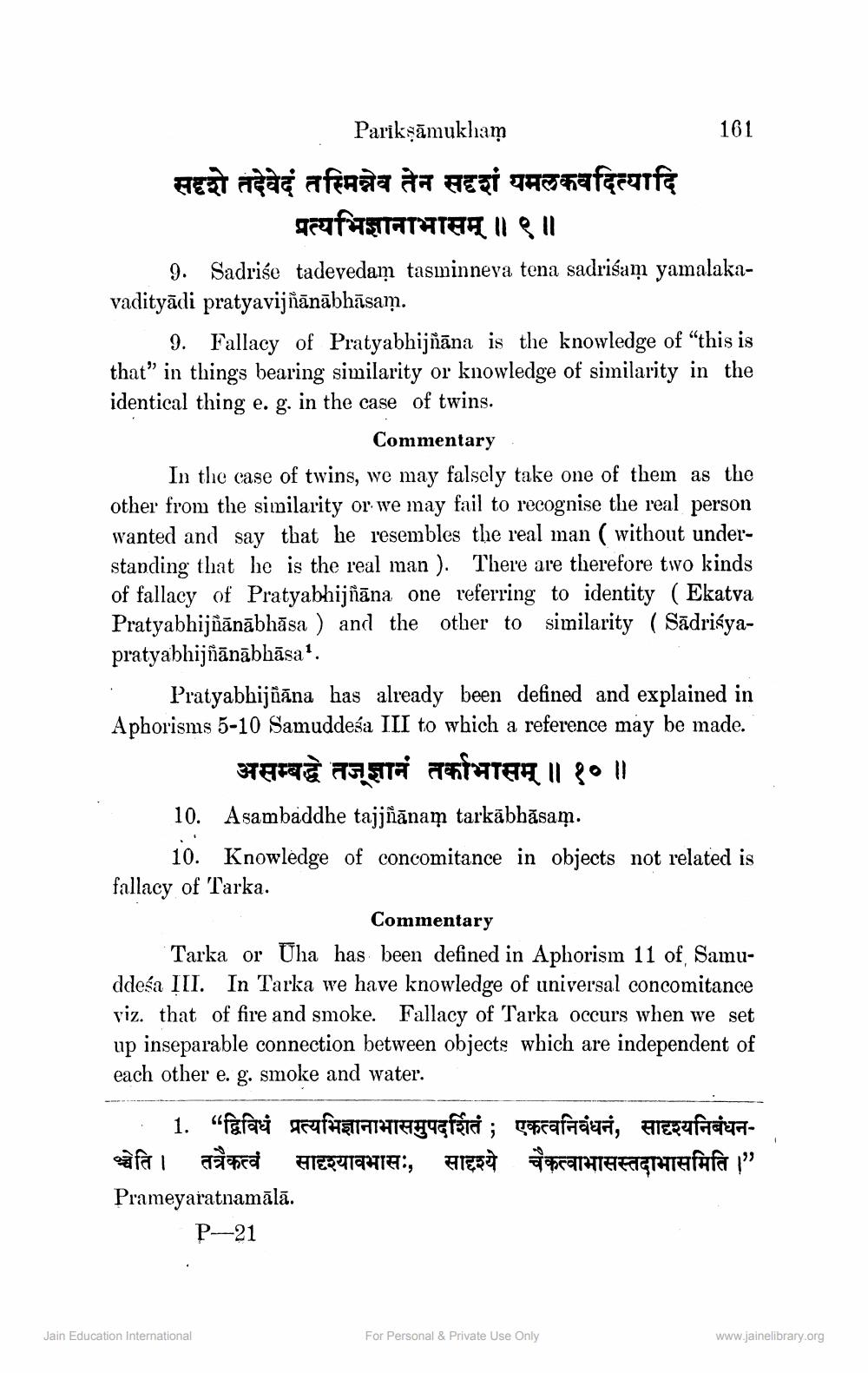________________
Parikşāmukham
161 सदृशे तदेवेदं तस्मिन्नेव तेन सदृशं यमलकवदित्यादि
प्रत्यभिज्ञानाभासम् ॥९॥ 9. Sadrise tadevedam tasminneva tena sadrićam yamalakavadityādi pratyavijñānābhāsam.
9. Fallacy of Pratyabhijñāna is the knowledge of "this is that" in things bearing similarity or knowledge of similarity in the identical thing e. g. in the case of twins.
Commentary In the case of twins, we may falsely take one of them as the other from the similarity or we may fail to recognise the real person wanted and say that he resembles the real man ( without understanding that he is the real man ). There are therefore two kinds of fallacy of Pratyabhijñāna one referring to identity (Ekatva Pratyabhijñānābhāsa ) and the other to similarity (Sãdrisyapratyabhijñānābhāsa'.
Pratyabhijñāna has already been defined and explained in Aphorisms 5-10 Samuddeśa III to which a reference may be made.
असम्बद्धे तज्ज्ञानं तर्काभासम् ॥ १०॥ 10. Asambaddhe tajjñānam tarkābhāsam.
10. Knowledge of concomitance in objects not related is fallacy of Tarka.
Commentary Tarka or Uha has been defined in Aphorism 11 of Samuddeśa III. In Tarka we have knowledge of universal concomitance viz. that of fire and smoke. Fallacy of Tarka occurs when we set up inseparable connection between objects which are independent of each other e. g. smoke and water.
: 1. "ferrari Arafahamway Eroti ; qocalana, EreYPAOLAञ्चेति। तत्रैकत्वं सादृश्यावभासः, सादृश्ये चैकत्वाभासस्तदाभासमिति ।" Prameyaratnamālā.
P-21
Jain Education International
For Personal & Private Use Only
www.jainelibrary.org




